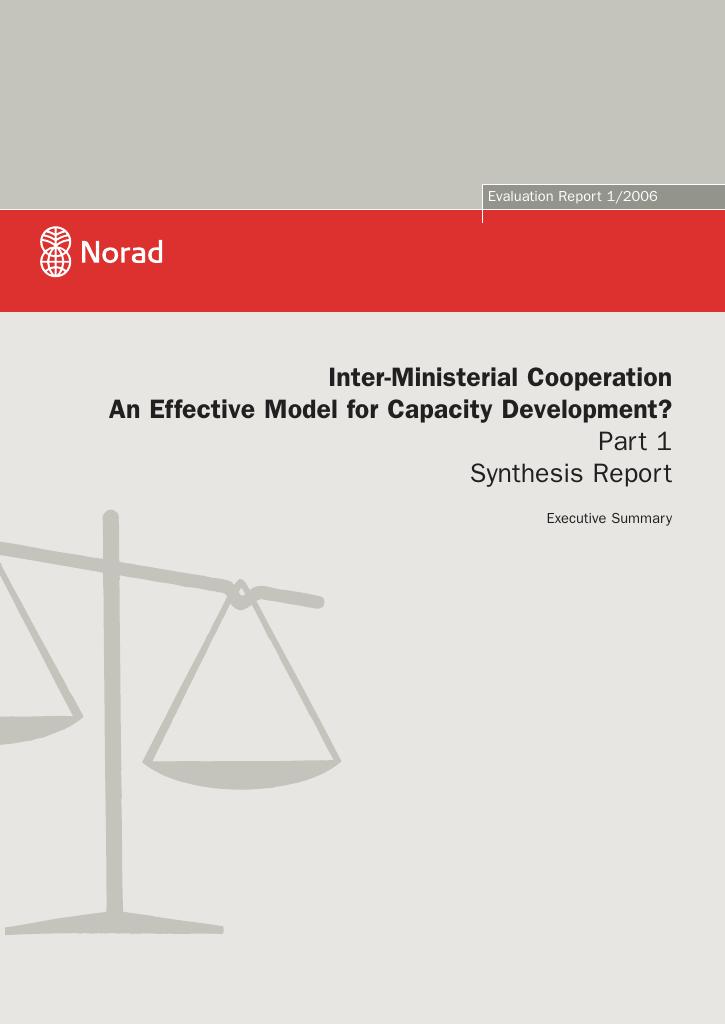Evaluering
Inter-Ministerial Cooperation : An Effective Model for Capacity Development?
The main purpose of the evaluation is to provide insight into institutional capacity building represented by twinning arrangements in the educational sector between Norway and Nepal/Zambia respectively, and assess the relevance of twinning arrangements as a means of TA.BackgroundIn 2000 the Norwegian Ministry of Education and Research established a cooperation with the Ministry of Education and Sports in Nepal and one with the Ministry of Education in Zambia.In Nepal, an agreement between the two ministries was signed for the implementation of a formative research project. In Zambia, the cooperation focussed on policy reform and capacity building at headquarters level and different thematic interventions in one province. The main components of the cooperation have been study visits to Norway, exchange of literature and teaching material, and intermittent technical assistance by advisors from Norwegian higher education institutions.The Norwegian Ministry became involved because of its experience with preparing and implementing educational reforms in Norway. In the beginning the ambitions were modest and focusing on specific aspects of the two sector programmes. The cooperation was not based on any clear perspective or understanding of inter-ministerial cooperation, but on a belief that collaboration between two sister ministries could offer a new and effective way of providing technical assistance and support to capacity development, one that is different from traditional technical cooperation. Such ministry-to-ministry cooperation would involve mutual professional exchange between colleagues rather than the more orthodox aid approach - which is mainly about one government providing funds and technical assistance towards the development of another country.Purpose of the evaluationThe main purpose of this evaluation is to provide insights into new forms of capacity development and to what extent inter-ministerial cooperation has become a new and effective model for such development. It was not meant as a project evaluation, but rather a thematic study of the link between ministry-to-ministry cooperation and capacity development. The study should explore and assess new ways of providing technical assistance - a topic of significant importance to most donor countries. The evaluation should also provide inputs to furtherplanning of the collaboration with the two countries.
